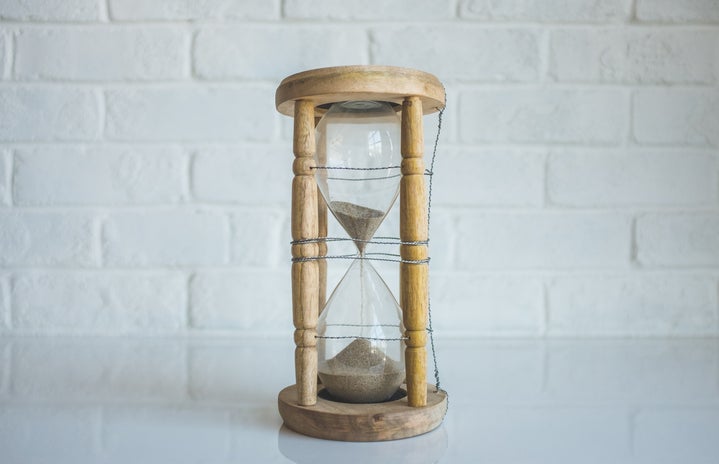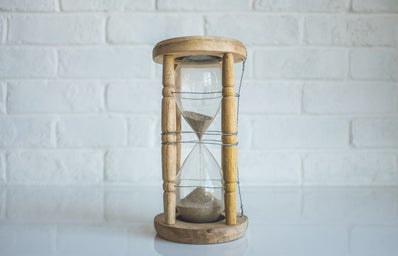2018, like any year, was packed. Seven months of a university student’s year consists mainly of trying (and struggling) to balance studying, partying, socializing and much more. Since the bulk of our year revolves around working hard, I wanted to share some of the essential apps on my phone that pulled me through last year in one piece and that I will continue to use in 2019. Since we all have a tight budget, these apps are free to download, except for some optional purchases. I use all of these apps on a daily basis and they have given me the feeling of control in my crazy hectic life.
1. Sleep Cycle
This app is revolutionary. I would recommend this to my friends, my mom, my grandma – I would recommend it to my dog if I could. This is an alarm app that wakes you up during the lightest point in your sleep cycle, so you wake up easier. You set it the time when you go to bed and when you want to wake up, within a 30-minute range. In my experience, it usually wakes me up about 15 minutes into my 30-minute window, depending on how restless I was at night. The app also gives you the option to use the microphone on your phone, by placing it on your night table to record your movements and snoring. This helps track the quality of your sleep. I usually don’t download these types of apps, but it is surprisingly accurate and incredibly effective. After five days of using the app, it creates sleeping trends for you that tell you the quality of your sleep using a percentage, for example 90% or 40%. I noticed a significant difference in my mood upon waking up after using this app for a while. I was less groggy and never snoozed my alarm; I even felt awake enough to get right out of bed no matter what time I fell asleep the night before. Since sleep is essential for everyone, but especially problematic among university students, Sleep Cycle is perfect for anyone who wishes to get their sleep schedule back on track and actually wake up feeling awake.
2. Medium
Medium is a platform that houses hundreds of thousands of stories by professionals, professors, students, and many other “average” people with an opinion. Medium is a great resource for information on any specific subject, news, and latest trends in anything from technology to medicine. There are also many great stories about mental health, stress, and self-improvement, which are my personal favorite. Each story notes the average time it takes to read, so you can choose different ones depending on your commitment level. Instead of endlessly scrolling through Instagram before bed, you can quickly read reputable and interesting articles on a variety of subjects. The more you read, the more the app gets to know you and recommends stories you might like.
3. Headspace
You’ve probably seen ads for Headspace before or heard your friend raving about it, because it’s seriously great. It’s a mindfulness app that includes guided meditations and sleeping aids. What exactly does that mean though? Headspace has dozens of sessions to do once or twice daily that only take 10 minutes and act as a mental check-in. There are also various optional podcast-type meditations, which teach you mental tips and aids. They now have sleeping aids which are calming and detailed stories to relax you and help you fall asleep. It sounds strange, but it really works. With our hectic and stressful days, it can be hard to wind down and turn off our brains; these aids make it much easier to drift to sleep. There are numerous mental health apps that claim to change your mindset, but this one shows actual improvements. About a year ago, I was having a lot of trouble falling asleep and would stay up all night, which would make me feel more anxious. I started using Headspace and noticed a huge difference after just a few days. Even if you’re not usually into meditating, it’s definitely something to try out with Headspace. The app teaches you great mindfulness techniques to use every day which help you keep your cool. It’s easy to begin a habit of negative thinking, which is why it’s important to be aware of your state of mind.
4. Bear
Bear is a minimalistic and simple-to-use note-making app. Unlike “Notes,” Bear uses hashtags to organize your different notes, such as #todo, #grocery, or whatever you choose. Personally, I value aesthetically pleasing notes because they make it less stressful to make and look at. In university, there are always a million and one things you have to do and think about at all times, which makes note-taking essential. Our brains can’t store and recall the endless number of thoughts we have every day. Bear makes it easy and satisfying to make lists, write down thoughts, and even share them with our friends and families. I use Bear mainly for my housemates and I to communicate. We have a shared note for our chores for the week, payments we owe and shopping lists for the house. It is a great resource to keep up your organization and productivity.
5. Strides
Strides is an app that helps you track and achieve your goals, and make good habits. For example, I am tracking my fitness per week. I set a goal for myself to work out at least twice a week, and it sends me reminders per week of that goal. After a while, it creates charts that show your progress to keep you motivated and focused on your different goals. This is a subtle but effective way to build effective habits and incorporate them into your routine. The best part: you can change it anytime, so it really builds your self control.
6. Screen Time
The last piece of software I wanted to mention and praise is not actually an app, but is built into your iPhone (sorry Android users). This is a new addition in Settings from a recent update, and it changes everything. Screen Time tracks and reveals your average usage of your phone per day and allows you to put limits on various apps to help minimize your time on your phone. This feature is extremely smart and categorizes your apps into social networking, entertainment, productivity, etc. I found Screen Time great for exam period; I placed a 30 minute limit daily for my social networking and entertainment apps. When I reached the limit, the screen would fade and notify me that my limit had been reached, and give me the option of either “15 more minutes,” or “ignore for the day.” Now, this did require a significant amount of self control, but just the reminder itself made me feel guilty and most of the time, I would lock my screen and put my phone away upon seeing it. I highly recommend taking advantage of Screen Time and checking out its numerous features to help diminish your dependency on your phone.


